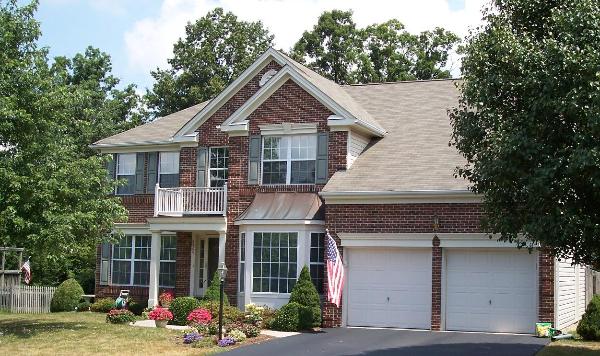What Is The Military Housing Assistance Program HAP Program?
The Department of Defense is proud to offer the Military Housing Assistance Program (HAP) to eligible service members and federal civilian, including non-appropriated fund, employees.
The program is authorized by law, and administered by the US Army Corps of Engineers to assist eligible homeowners who face financial loss when selling their primary residence homes in areas where real estate values have declined because of a base closure or realignment announcement.

The American Recovery and Reinvestment Act of 2009 temporarily expands the Military Housing Assistance Program to assist service members and DOD employees who are wounded, injured or become ill when deployed, surviving spouses of service members or DOD employees killed or died of wounds while deployed, service member and civilian employees assigned to BRAC 05 organizations, and service members required to permanently relocate during the home mortgage crisis.
How Can HAP Help You?
HAP provides assistance in four ways. For eligible applicants, the Government may:
- Reimburse you for part of your loss from selling your home.
- Assist you, if you don’t have funds from the sale of your home to pay-off your mortgage.
- Purchase your home by paying off the mortgage.
- Help, if you default on your mortgage.
Can I use a realtor to sell my home?
Yes. Using a realtor may increase your chances to find a buyer. The Expanded Military Housing Assistance Program will pay all normal sellers’ closing costs, including realtor fees.
Why should I use Linton Hall, Realtors® to take care of my HAP sale?
Linton Hall, Realtors’ written marketing plan complies with strict HAP guidelines that are required, such as:
- List your primary residence, actively marketed, and available for purchase for a minimum of 120 days.
- Demonstrate that the asking price was within the current market value of the home as determined by the CoE automated value model (AVM) for no less than 30 days.
- Explain marketing efforts by detailing how the asking price was gradually reduced until it reached the true current fair market value (i.e., maintaining a log containing date and asking price recorded over period of time indicating number of visits by prospective buyers and offers to purchase).
- If you are unable to sell the primary residence, the CoE will determine whether efforts to sell were reasonable.
- Assist the local appraisers if they have input if the applicant chooses to appeal the decision for eligibility and wishes to purchase an appraisal.
- Assist you in completing the application package to determine eligibility.
Who is Eligible?
The applicant must be a military service member (including Coast Guard) or federal civilian employee (including non-appropriated fund) assigned at or near the installation announced for closure or realignment.
Also Eligible Are:
- Personnel transferred or terminated within six months prior to the announcement who were owner-occupants at the time of transfer.
- Civilian and military personnel on overseas tours who transferred within three years prior to the announcement and who are homeowners in the area.
- Civilian employee homeowners on overseas tours with reemployment rights in the area affected by the announcement.
- Military member homeowners ordered into on-post housing within six months prior to the announcement.
- All applicants must have been the owner-occupant of their homes for which assistance is being requested on the announcement date.
- A Non-Appropriated employee who was assigned at the installation on the closure/realignment announcement date may also apply.
- Also eligible are personnel transferred or terminated within six months prior to the announcement who were owner March 3, 2010.
- Civilian and military personnel on an overseas tour who transferred within 3 years prior to the announcement and who are homeowners in the area; and
- Civilian employee homeowners on an overseas tour with reemployment rights in the area affected by the closure; and
- A military member homeowner ordered into on-post housing within six months prior to the announcement.
In addition, applicants must be relocating beyond commuting distance from the area.
All applicants must have been the owner-occupant of the home for which assistance is being requested on the announcement date. To qualify, the applicant must also meet other eligibility criteria.
These are the general eligibility requirements. If you think you may be eligible, you should submit an application for a formal determination.
What are the specific eligibility requirements?
For members of the Armed Forces – Those who receive a disability rating of 30% or more for an unfitting condition (using the Department of Veterans Affairs Schedule for Ratings Disabilities), or who are eligible for Service member’s Group Life Insurance Traumatic Injury Protection Program, or whose treating physician (in a grade of at least captain in the Navy or Coast Guard or colonel in Army or Air Force) certifies that the member is likely, by a preponderance of the evidence, to receive a disability rating of 30% or more for an unfitting condition (using the Department of Veterans Affairs Schedule for Ratings Disabilities) for wounds, injuries, or illness incurred in the line of duty while deployed, on or after September 11, 2001.
For Civilian Employees of DoD (including employees of non-appropriated fund instrumentalities) or the United States Coast Guard who suffer a wound, injury, or illness (not due to own misconduct), on or after September 11, 2001, in the performance of duties while forward deployed in support of the Armed Forces, whose treating physician provides written documentation that the member, by a preponderance of the evidence, meets the criteria for a disability rating of 30% or more (this documentation will be certified by a physician in the grade of at least captain in the Navy or Coast Guard or colonel in Army or Air Force).
For both military and civilian applicants there must be a need to relocate from the primary residence in furtherance of medical treatment, rehabilitation, or due to medical retirement resulting from the wound, injury, or illness, and a need to market the primary residence for sale due to the wound, injury or illness.
I had a contract to purchase my home prior to July 1, 2006, but closed after that date, do I qualify?
 If you are a Military PCS eligible applicant and were under contract to purchase prior to 1 July 2006 and closed after that date, you would qualify. For applicants eligible as Wounded, Injured or Ill and Surviving Spouses the requirement to purchase the primary residence prior to July 1, 2006 does not apply.
If you are a Military PCS eligible applicant and were under contract to purchase prior to 1 July 2006 and closed after that date, you would qualify. For applicants eligible as Wounded, Injured or Ill and Surviving Spouses the requirement to purchase the primary residence prior to July 1, 2006 does not apply.
What are the specific eligibility requirements for a Surviving Spouse?
The surviving spouse of a Service member or of a civilian employee whose spouse dies as the result of a wound, injury, or illness incurred in the line of duty while deployed (or forward deployed for civilian employees) on or after September 11, 2001, and who relocate from the member’s or civilian employee’s primary residence within two years of the death of spouse.
Is a service member who is not attached to the installation eligible for HAP benefits?
No. Any service member or federal employee (including Non-Appropriated Fund employees) must be assigned to or employed in connection with an installation at the time of public announcement (May 13, 2005) of the closure action to be eligible.
If I retire do I qualify for HAP benefits?
If you are a BRAC 2005 eligible applicant you would qualify only if your position is moved or eliminated. Permanently Reassigned Members of the Armed Forces (PCS) who are reassigned or who otherwise relocate for the following reasons are NOT eligible for Expanded Military Housing Assistance Program benefits:
- Members who retire prior to reaching their mandatory retirement date.
- Members who are a new accession into the Armed Forces or who are otherwise entering active duty.
- Members who are voluntarily separated or discharged.
- Members whose separation or discharge is characterized as less than honorable,
- Members who request and receive voluntary release from active duty (REFRAD).
- Members who are REFRAD for misconduct or poor performance.
Will I have to bring any money to closing?
If you occupy your home until or nearly until the closing date and have not made payment for the month, you will be responsible for interest due for the previous month plus year-to-date real estate taxes.
At what point should I market my home?
As soon as you know you will be relocating. Two eligibility requirements for the program are 1) the applicant must have made a reasonable effort to sell the home, and 2) relocated beyond a reasonable commuting distance. However, in some instances, an applicant may be eligible without relocating, provided they lost their job due to a base closure or realignment and demonstrate a financial hardship.
If I sell my home at a loss and I qualify for the Expanded HAP program, will I be able to recoup 100 percent of my loss?
No, but it can substantially offset your losses. Each individual’s situation is unique.
Will my Expanded HAP benefits be taxable?
No. President Obama signed HR 3548, Unemployment Compensation Extension Act of 2009 into law and thereby exempted Expanded Military Housing Assistance Program benefit payments from taxation. Payments to military members are not subject to social security or Medicare taxes. Tax documents will be certified by the HQUSACE Finance Center, and distributed to applicants and the Internal Revenue Service (IRS) on an annual basis.
Is there a cap on the benefits the Expanded HAP will pay per applicant?
The Primary Fair Market Value (PFMV) may not exceed an amount equal to the 2009 Fannie Mae/Freddie Mac conforming loan limits (as amended by the ARRA of 2009). These conforming loan limits range from $417,000 to $729,500. These apply for the duration of the Expanded HAP and are established for each city/county/parish as appropriate.
Who pays for closing costs when the government purchases a home under the Expanded HAP?
The Government will pay for title services to close the transaction, and any other allowable closing costs.
If I rent my home before I sell it, will it impact HAP benefits?
No. Rental income is not deducted from benefit payments.
** All information presented on this site is strictly for information purposes only and is not to be interpreted as accounting or legal advice. Government and Bank program and procedures can change, affecting the validity of the information displayed on this site.












